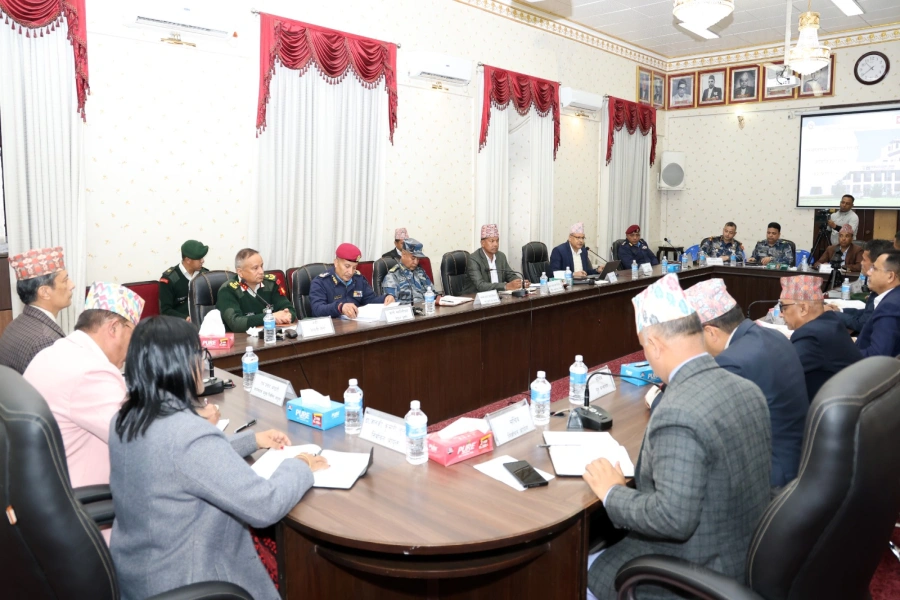KATHMANDU, Dec 4: Although austerity measures in all public spending has been a big part of the agenda of the KP Oli government, Nepal is the only country in South Asia sending a head of state to the UN Climate Change Conference in Poland, at a cost of several millions to state coffers.
While government officials defend the government’s decision, saying it is to demonstrate the importance Nepal attaches to the issue of climate change, others have termed it “unnecessary”, especially since it is rather exceptional to have representation at the level of head of state, given the technical nature of the conference.
Other South Asian countries are found to have sent delegations led by environment ministers or experts assisting the government in this field. The Indian delegation to COP-24 is led by Union Environment Minister Dr Harsh Vardhan, while Pakistan has sent a delegation led by Advisor to the Prime Minister on climate change, Amin Aslam.
Azerbaijan to host COP-29

Similarly, the Bhutanese delegation to the UN Climate Change Conference is led by Secretary of National Environment Commission (NEC) Sonam P Wangdi. While the Maldives has sent a delegation led by former president Mohammed Nasheed, who is said to be an expert in environmental affairs, another South Asian nation, Sri Lanka, has only sent a government official, largely because of the political instability there.
It is not just South Asian countries, but neighboring China has chosen to send a government expert on climate change. Special Representatives on Climate Change Negotiations Xie Zhenhua is leading the Chinese delegation.
A visit of a head of state abroad is a costly affair. When the president visits abroad, a secretary or senior joint secretary, the chief of protocol, protocol officers and an interpreter from the Ministry of Foreign Affairs need to accompany her. Additionally, the secretary at the President’s Office, advisers and other officials also accompany the visit.
Nepal’s delegation led by President Bhandari includes Minister for Forest and Environment Shakti Basnet and dozens of other government officials including secretaries at the President’s Office and Ministry of Forest and Environment and officials from the Ministry of Foreign Affairs and concerned line ministries.
What exactly led the government to decide on the highest level representation is not known. Foreign Ministry officials, however, say the decision could have been meant to demonstrate the importance that Nepal attaches to climate change. “The government could have decided on the highest level representation to demonstrate the high importance Nepal attaches to the issue of climate change,” said an official, asking not to be named.
Experts, however, argue that Nepal should instead have sent the prime minister—the executive head— if it really wanted to demonstrate its climate concerns. Since the minister for forest and environment was already a part of the delegation, there was no point sending the president as well.
Such misplaced priorities have greatly eroded Nepal’s diplomatic image abroad, experts also said. “Nepal has to be able to determine what level delegates to send to regional and international events, keeping in view its national interest. Such visits should not be for quenching the thirst for foreign visits by those in power,” said former foreign minister Ramesh Nath Pandey.










_20230226123652.jpg)

















-1200x560-1771928761.webp)










